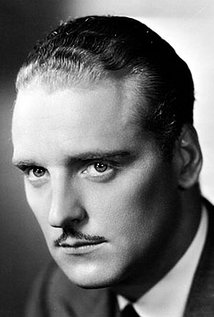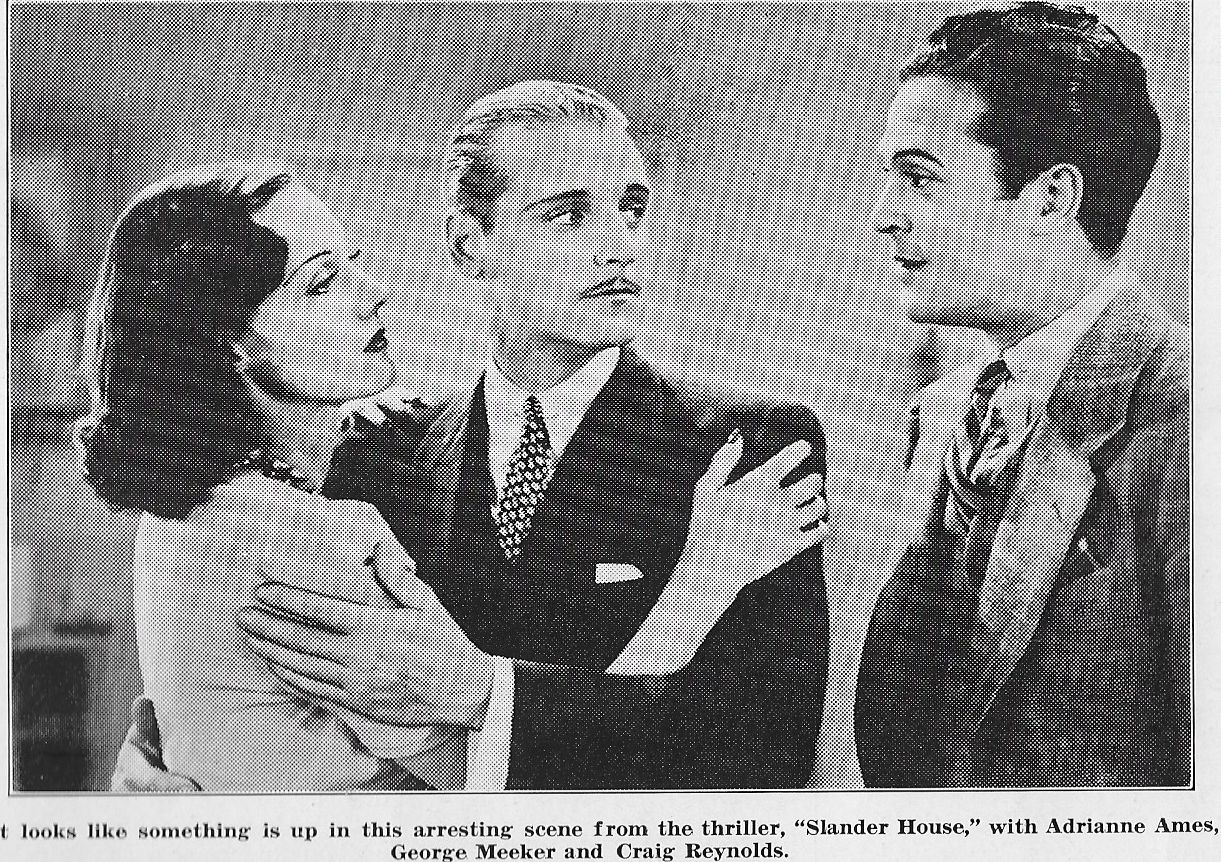
George Meeker
Birthday:
5 March 1904, Brooklyn, New York, USA
Height:
180 cm
This durable co-star-turned-character man had the steely eyes and overall slickness of somebody never to trust...and for good reason. For over two decades George Meeker fit the bill as the guy you loved to hate in movies. Frequently the spineless third wheel of a romantic triangle, he always lost the woman in the deal. In politics or business, he w...
Show more »
This durable co-star-turned-character man had the steely eyes and overall slickness of somebody never to trust...and for good reason. For over two decades George Meeker fit the bill as the guy you loved to hate in movies. Frequently the spineless third wheel of a romantic triangle, he always lost the woman in the deal. In politics or business, he was the crooked lawyer or shady exec who'd sell his own mother for a quick buck. He specialized in crime mysteries and was invariably the guilty party or the victim who deserved it anyway.Meeker was born in Brooklyn on March 5, 1904 and studied at the American Academy of Dramatic Art following high school. After some stage experience he made his Broadway debut with "Judy Drops In" in 1924 and went on to appear in a handful of plays including "A Lady's Virtue" (1925), "Back Here" (1928) and "Conflict" (1929). From then on he focused on films. He started his career auspiciously as silent pictures were just about to become a part of Hollywood history. A strong featured part in John Ford's Four Sons (1928) led to his top-billed role in the mystery Thief in the Dark (1928) and co-star duty opposite both Nancy Carroll in the comedy Chicken a La King (1928) and western star Rex Bell in Girl-Shy Cowboy (1928). Meeker's voice was found quite suitable for talkies and he forged ahead in roles that grew more unappetizing with time. Often bespectacled and dressed to the nines, he played the fusty, wimpy, sour-looking fiancé who loses lovely Sidney Fox in Preston Sturges' comedy-drama Strictly Dishonorable (1931), a role he would play time and again. He went on to lose Joan Blondell in The Famous Ferguson Case (1932) Irene Dunne in the classic Back Street (1932) and Margaret Sullavan in Only Yesterday (1933), among other ladies. He showed more of his corrupt side in the pre-Code Afraid to Talk (1932) and just how homicidal his tendencies could be in the thriller Night of Terror (1933) in which he manages to out-evil Bela Lugosi. His slick looks were nudgingly unpleasant and just this side of good-looking--ideal for "B" mysteries. He was on the losing end in plenty of crimers, including King for a Night (1933) with Chester Morris, The Dragon Murder Case (1934) and Murder on a Honeymoon (1935). When he did appear in an "A" picture, he was often uncredited as in Mr. Deeds Goes to Town (1936), Stella Dallas (1937), Gone with the Wind (1939), Casablanca (1942) and The Ox-Bow Incident (1943).By the 1940s and WWII, Meeker started appearing further down the credits list playing everything from featured roles to one-liners. Still up to his debonair bad guy antics, he played everything from Nazi spies in Spy Ship (1942) and Secret Enemies (1942) to slick-haired gangsters in Mr. Muggs Rides Again (1945), Crime, Inc. (1945) and Below the Deadline (1946). He also served up some shady suspects in cliffhangers with Brenda Starr, Reporter (1945) and Superman (1948) topping the list. Meeker retired from movie-making in 1951 and wasn't heard of much until his death from complications of Alzheimer's disease on August 19, 1984 in Carpenteria, California. Show less «
















